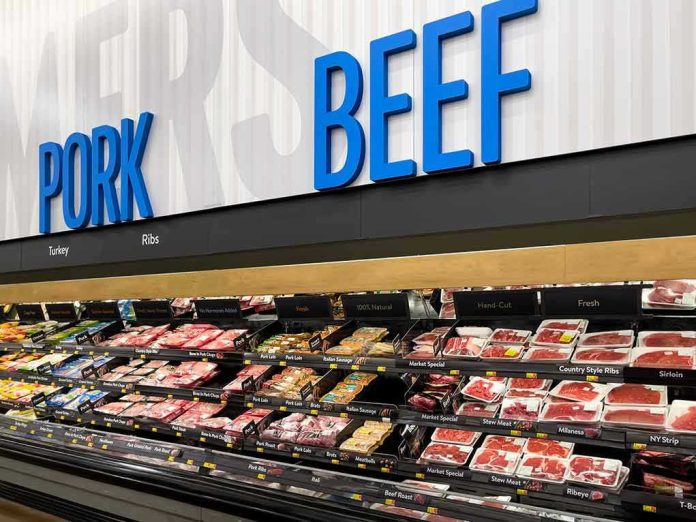
The push to ban lab-grown meat gains momentum in conservative states, sparking a heated debate over food, freedom, and federal overreach.
Story Highlights
- Several U.S. states, including Texas and Florida, have banned lab-grown meat.
- Bans target consumer transparency and protection of traditional agriculture.
- Legal challenges arise as companies contest state bans.
- NCBA pressures FDA for stricter labeling rules.
State Bans on Lab-Grown Meat
In a significant move, Texas, Florida, and other conservative states have enacted bans on lab-grown meat, a decision that reflects broader concerns about food safety, consumer transparency, and the protection of traditional agriculture. These bans have emerged as a response to the perceived threat of lab-grown meat to rural economies and cultural identities, with state officials framing the issue as one of preserving local agriculture against federal overreach.
These state-level bans have stirred significant controversy, not only within the food industry but also among political and consumer groups. The bans have led to legal challenges from cultivated meat companies and advocacy groups who argue that such restrictions infringe on consumer choice and stifle innovation. Despite federal approval for lab-grown meat, these state actions have effectively blocked market access in key regions, setting the stage for a complex legal battle over state versus federal authority.
Industry and Political Reactions
The National Cattlemen’s Beef Association (NCBA) has been a vocal supporter of these bans, arguing that they are essential to protect consumers and maintain the integrity of “real meat.” The NCBA has also urged the FDA to impose stricter labeling rules on both plant-based and cell-cultured products, emphasizing the need for clear consumer information and the prevention of misleading advertising.
State leaders have voiced strong support for the bans, with Texas Agriculture Commissioner Sid Miller stating that Texans have the right to know their food’s origins, reinforcing the importance of traditional agriculture. Similarly, Florida Governor Ron DeSantis has expressed a clear stance against lab-grown meat, underscoring his commitment to protect state agriculture from what he perceives as unnecessary federal intervention.
Potential Impacts and Future Considerations
The immediate impact of these bans includes a significant loss of market access for cultivated meat companies and increased legal uncertainty for the alternative protein sector. This could lead to a chilling effect on investment and innovation within the cultivated meat industry, potentially discouraging international companies from entering the U.S. market due to regulatory complexities and regional restrictions.
The Liberal Project To Make Us Eat Gross Science Experiments Is Collapsing https://t.co/QqmjAfMihM via @dailycaller
— Christopher 🇨🇦 🇯🇵 (@folkmythmedia) September 8, 2025
In the long term, these state bans could set a precedent for future state-level restrictions on federally approved food technologies, raising questions about the balance between state rights and federal authority in food regulation. As the debate continues, the broader implications for consumer choice, environmental sustainability, and the future of food technology remain uncertain, highlighting the need for ongoing dialogue and negotiation among stakeholders.
Sources:
National Cattlemen’s Beef Association: Official statements and policy positions
Fox News: Legislative updates and industry reactions
Beef Magazine: Industry analysis and legislative tracking









